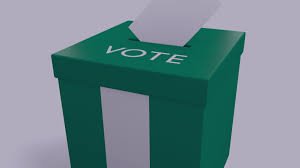If it was somehow fuzzy and somewhat obscure before, it is now becoming clearer by the minute. The consequences of the economic and public health impact of this pandemic is shutting down the economy, and the powers that be, the ruling class, the business owners, the government are to a lesser or greater degree intent on shifting the burden of the economic stabilisation and recovery to the working and ordinary people, the poor.
We know, and we should try to get the figures, that several businesses – in particular the Medium and Small Enterprises (MSMEs) have already shutdown, and that it will be difficult, if not nearly impossible for them to restart without some form of support and stimulus. But even the big businesses have been gravely impacted. We know that several entities, including governments are contemplating sack workers, closing branches, and reducing benefits, allowances and salaries.
Some businesses like Access Bank have come out in the open. Many more in the aviation and financial services sectors are also seriously contemplating such moves. All of them, government and businesses, are thinking seriously about and planning to downsize and resize there operations and systems. The resultant effect of all these can only be one thing – job losses and redundancies with the consequent impact on poverty, and the spending capacity of citizens in turn affecting the ability of businesses to sell their goods and services.
The pandemic, by engendering a lockdown, is through the shutdown of the economy, leading to a recession and contraction. Government has for instance stated that it has deregulated the downstream sector of oil and gas industry, that is the price of fuel. The implication is that as price if crude rises, landing cost of imported refined products will rise, and consequently the pump price of fuel will rise, and keep rising in the midst of a recession and contraction. The simple reason for this is our lack of domestic refining capacity.
Nigeria is Africa’s largest exporter of crude, and paradoxically also Africa’s largest importer of refined petroleum products. What a shame. What a sham. The January Uprising of 2012 was over this fuel price increase occasioned by our lack of domestic refining capacity. More than eight years since that uprising, our refineries are still moribund and we are yet to build new ones. In eight years? How long does it take to build refineries? Before the pandemic composite unemployment was already more than 40 percent in the general population, and more than 53% among youth!
Before the pandemic, poverty rate was already more than 80 percent. And we were already Africa’s most unequal society – with the richest black man being a Nigerian, and the largest number of poor people in Africa being Nigerians. Before the pandemic we became the poverty capital of the world with the largest number of poor peoples of any country. So, just imagine what the post pandemic situation will look like with the impending job losses being contemplated, and with the rising cost of essential goods and services, and without any support to those who actually need it.
The situation will be calamitous. That is why we must begin to prepare for a relentless fight back now. We must organise and take collective action to demand that there must be no job losses or wage cuts, to resist any attacks on our standard of living, and to demand that struggling MSMEs be supported with well targeted stimulus. We must insist that companies are not allowed to lay off workers. And that we resist the rise in cost of fuel and other goods that are being contemplated. Let the fight back begin.






















